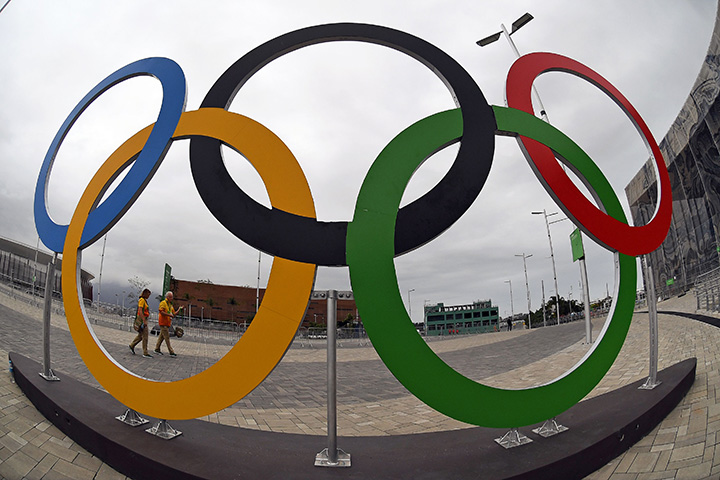A survey of Olympic and Paralympic athletes in Canada provides a snapshot of allegations of abuse they said they felt powerless to stop.

The results of the survey and recommendations from it were unveiled Tuesday by AthletesCAN, an athlete advocacy body.
The findings will be presented at the Coaching Association of Canada’s two-day Safe Sport Summit in Ottawa starting Wednesday, when national sports minister Kirsty Duncan is scheduled to address the report.
The survey questions delved into a range of maltreatment including sexual, psychological and physical abuse as well as racial and sexual discrimination, neglect and hazing.
Of the 1,001 athletes who anonymously answered the online questions, 61 per cent were female, 764 were on a national team and 237 were retired.
“I think it’s the first time that athletes have truly had a voice as a collective unit,” Olympic champion wrestler Erica Wiebe told The Canadian Press in a phone interview.
“It’s the first time we’ve had an opportunity to talk about these things in a way that’s confidential, that’s anonymous, that’s completely external from our national sports organizations, their decisions makers and the Canadian sport system.”
“It’s very important that athletes’ voices, that the athlete experience is at the forefront of this issue.”
WATCH: Ottawa calls on athletics organizations to expose abuse, harassment (June, 2018)

One conclusion was only 15 per cent of athletes reported abuse to those with the power to do something about it.

Get daily National news
The report included comments from unidentified respondents.
One said “knowing we can be replaced and our careers are on the line, you are regularly forced to ignore issues or maltreatment out of fear.”
“I have witnessed blackmail, intimidation, favouritism, experienced verbal and mental abuse personally. We are silenced or put down if we ask questions. I am fearful that after I speak out, I will be punished.”
Another said: “As long as people are achieving results, the coaches and high-performance directors could act with absolute immunity. No medal justifies how we were treated. In all honesty, I will never get over it.”
- Attack on Iran triggers global flight disruptions, impacts Canadian travellers
- Queen’s University students stranded in Doha after Iran attack shuts down airspace
- WWE Hall of Fame ring belonging to wrestling legend recovered after stolen
- Quebec politician praised for speaking openly about menopause symptom in legislature
Former downhill skier Allison Forsyth was among eight women who went public about the sexual abuse they suffered at the hands of a coach.
She alleged she was sexually abused by coach Bertrand Charest when she was a teenager.
Last June, Charest was found guilty of 37 out of 57 sex-related charges he was facing. He was sentenced to 12 years in prison.
He was not convicted on charges that involved Forsyth due to jurisdictional issues because the alleged incidents occurred outside of Canada.
In 1998, Forsyth says she was encouraged to stay quiet about what was happening to her “because we would lose our sponsors,” she told The Canadian Press last year.
“Athletes rarely report. Plain and simple,” Forsyth says now. “They are not comfortable or feel safe doing so with anyone who has a vested interest in the outcome. I reported and did not experience a positive outcome.”
A recommendation most important to Wiebe is establishing an independent mechanism to investigate and rule on complaints instead of a sport federation investigating itself.
“There is a culture of fear, a culture of silence in our sport community,” said the 29-year-old from Stittsville, Ont.
“I think having an independent third-party organization that is overseeing safe sport in Canada, that is providing standardized education and that is managing complaints of maltreatment is essential if we’re really going to shift the paradigm on this issue.”
Mandatory education for all sport stakeholders, strengthening accountability measures, providing support and resources to those who experience abuse and prohibiting sexual relationships between athletes and those in positions of authority were also among the recommendations.
Canada’s sport system underwent a revolution prior to the 2010 Winter Games in Vancouver and Whistler, B.C., with the goal of being the top winter-sport country in the world and among the best in summer sport.
Winning medals and treating athletes in a humane way aren’t mutually exclusive, Wiebe said.
WATCH: Feds threaten to cut funding to sport groups who fail to address abuse (June, 2018)

“Caring for athletes as humans first will actually increase our performances in sport,” she said.
“When you think about the number of athletes, the number of people that have been forced out of sport for these types of reasons, there are a lot of Olympic champions that we probably forced out of sport really early on.
“I really think that having a value-based sport system that takes a holistic approach to athlete well-being will actually improve Canada’s performance and improve what it means to be Canadian for athletes in our country.”







Comments
Want to discuss? Please read our Commenting Policy first.